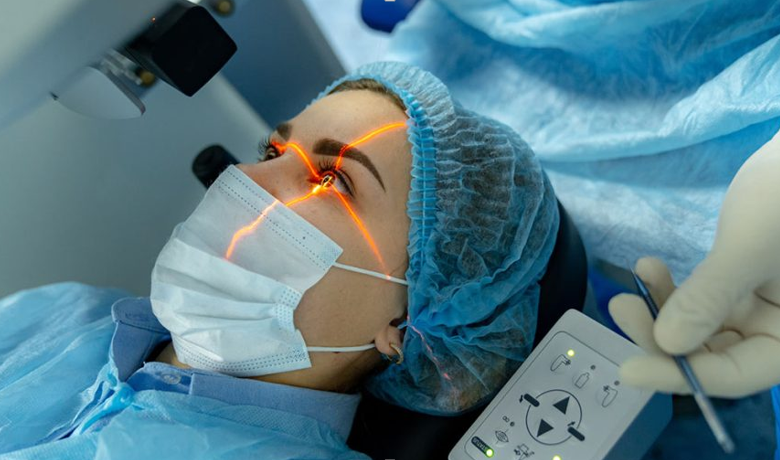Is Laser Eye Surgery Safe? Myths and Facts Explained

Laser eye surgery, commonly known as LASIK or PRK, is a procedure designed to correct refractive vision problems such as myopia, hyperopia, and astigmatism. By reshaping the cornea using a precision laser, the surgery helps light focus properly on the retina, improving vision. It’s typically an outpatient procedure with a short recovery time. Most patients report improved vision within 24 to 48 hours, though complete healing may take a few weeks.
1: Laser Eye Surgery Is Painful
One of the most common misconceptions is that laser eye surgery is painful. In reality, the procedure is virtually painless due to the use of numbing eye drops. Patients might feel mild pressure or slight discomfort, but nothing more intense. After the surgery, there may be a gritty or dry sensation for a day or two, which is managed with prescribed lubricating drops. Most people return to their normal activities within a few days with minimal post-operative issues.
2: It Can Make You Go Blind
The fear of blindness is understandable. Laser eye surgery is considered one of the safest elective procedures, with a very low risk of serious complications. Permanent vision loss from LASIK or PRK is extremely rare and often related to pre-existing conditions rather than the surgery itself. Surgeons perform comprehensive eye exams before the procedure to ensure that you’re a suitable candidate, which reduces risk.
3: The Effects Wear Off Over Time
Many believe that the benefits of laser surgery are temporary. While it’s true that your eyes may change with age particularly due to presbyopia in your 50s, the correction achieved by laser surgery is generally long-lasting. Most patients enjoy stable vision for many years. In a few cases, a follow-up procedure or enhancement might be needed, but these are not common. Laser surgery doesn’t “wear off”, your eyes simply evolve with time.
4: It’s Only For People With Severe Vision Problems
Another myth is that laser eye surgery is only suitable for those with severe myopia or astigmatism. Actually, the procedure is widely used to correct mild to moderate vision issues as well. Candidates include people who wear glasses or contact lenses regularly and want a more permanent solution. However, it depends on various factors like corneal thickness, eye health, and overall medical history, which your ophthalmologist should evaluate.
See also: Scientific Insights into Air Quality and Public Health
The Safety Standards And Technology Behind The Procedure
Advancements in medical technology have dramatically enhanced the precision and safety of laser eye surgery. Today’s procedures use highly advanced femtosecond and excimer lasers that are guided by real-time eye-tracking software. Clinics follow strict hygiene and calibration protocols to ensure accuracy. In addition, personalized treatment plans, based on corneal topography and wavefront analysis allow for a custom-fit correction that’s both safe and effective. All these factors contribute to better long-term results.
Potential Risks And How They’re Managed
While laser eye surgery is generally safe, it’s not without risks. These may include dry eyes, halos around lights, and temporary visual fluctuations. However, such side effects are usually short-lived and manageable. Clinics provide thorough pre-operative counseling to help patients understand both the benefits and limitations. Follow-up visits ensure that healing is progressing well, and doctors are equipped to handle any complications early.
Chandigarh has become a hub for high-quality, affordable healthcare, especially in ophthalmology. The city has several reputed eye hospitals and surgeons who offer modern technology, internationally accredited care, and personalized treatment. Additionally, the clean environment supports post-operative recovery. Patients from across North India often prefer laser eye surgery in Chandigarh because of its high success rates and medical infrastructure.
Who Should And Shouldn’t Consider Laser Eye Surgery?
Laser eye surgery isn’t for everyone. Ideal candidates are over 18, have a stable vision prescription, and are free from certain eye diseases. Those with thin corneas, autoimmune disorders, or severe dry eyes may not be suitable. A consultation helps determine eligibility. It’s also important to have realistic expectations even though the procedure can significantly reduce dependency on glasses or contacts.
Deciding whether to undergo laser eye surgery is personal and should be based on facts. Understanding the myths and realities can help you feel more assured about the procedure. Consultation with an experienced ophthalmologist, preferably one who walks you through the pros and cons is important.





